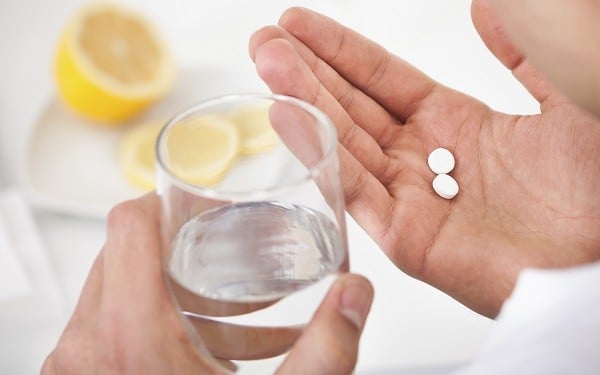
Understanding Heart Medications
If you’ve recently had a heart attack or been diagnosed with a cardiac condition, chances are your physician has prescribed several medications to decrease your risk of future heart problems and keep your heart working well. “The sheer variety of heart medications available can be overwhelming,” says Matthew Lucks, MD, a cardiologist at Scripps Health in San Diego. “It can be helpful and reassuring to understand why you need a certain medication and what it does.” The specific medications your physician prescribes will depend on your diagnosis, other conditions you may have such as high cholesterol or diabetes, and factors such as your age and lifestyle. “It’s important to remember that regardless of which medications you take, you know how to take them correctly and understand all of the risks, benefits and possible side effects,” notes Dr. Lucks. “Also, be sure to ask your doctor whether you should avoid any foods, other prescriptions, or over-the-counter drugs or supplements that may cause adverse interactions.”
A quick guide to heart medications
- Aspirin In addition to helping ease a headache, aspirin has anti-inflammatory properties that decrease inflammation associated with heart disease. Aspirin can also help prevent blood clots that can block the flow of blood through the arteries and lead to a heart attack or stroke. Physicians often prescribe at least 81mg of aspirin daily to patients with a higher risk of heart attack due to heart disease, hardening of the arteries, angina (chest pain caused by a lack of blood to the heart muscle) or other factors.
- ACE Inhibitors Angiotensin converting enzyme (ACE) inhibitors dilate, or widen, blood vessels to improve the flow of blood, ease the demands on the heart, and lower blood pressure. ACE inhibitors are often prescribed for high blood pressure and heart failure, and may help decrease the risk of heart attack or stroke in people with heart disease. When given after a heart attack, they may help prevent heart damage. ACE inhibitors include Capoten, Zestril and Vasotec.
- Antiarrhythmics People who have abnormal heart rhythms — such as hearts that beat too quickly, too slowly, or irregularly — may be prescribed antiarrhythmic medications such as Rythmol and Amiodarone. These help regulate the heart’s electrical activity so that the heart beats normally. Antiarrhythmics may be used alone or with an implantable cardioverter defibrillator (ICD), a device that also helps to treat lethal heart rhythms.
- Anticoagulants These prescription medications (such as Coumadin and Pradaxa) are similar to aspirin in that they help prevent blood from coagulating or clotting, but are much stronger. Anticoagulant medications are often called blood thinners, but they do not actually thin the blood, nor do they dissolve existing blood clots. Weight loss, exercise, illness and changes in medications can all affect how some anticoagulants work and should be discussed with a doctor. Patients taking Coumadin must have regular blood clotting tests to ensure they are taking the proper dose.
- Beta Blockers Beta blockers (such as Coreg, Toprol and Bystolic) are often prescribed after a heart attack to help the heart recover and minimize harmful substances produced as a result of heart failure. Some beta-blockers can also help improve the heart’s ability to pump blood. Others may be recommended for people with high blood pressure, angina and abnormal heart rhythms.
- Calcium Channel Blockers Like beta blockers, calcium channel blockers decrease the heart’s workload by increasing its supply of blood and oxygen. Calcium channel blockers are often prescribed to people who cannot take beta blockers, and include Verapamil and Cardizem.
- Omega-3-acid Ethyl Esters In patients with high amounts of harmful fatty substances called triglycerides, omega-3-acid ethyl esters such as Lovaza can help to decrease triglyceride levels in the blood. Lifestyle changes, such as weight loss, exercise and eating a diet low in fat and cholesterol, can increase the effectiveness of these medications.
- Statins Statin medications help to lower the levels of “bad” cholesterol in the blood, marginally raise “good” cholesterol levels, and lower triglyceride levels. Statin medications, such as Lipitor, work by decreasing “bad” cholesterol production in the liver and can decrease inflammation in cholesterol plaques. As with omega -3-acid ethyl esters, lifestyle changes can boost the drugs’ effectiveness.
- Thienopyridines Thienopyridines act to prevent blood clots by inhibiting receptors on the surface of platelets, which then prevents the plateles form sticking together and causing blood to clot. These medications (such as Plavix and Effient) may be given along with aspirin after a heart attack or in patients undergoing coronary angioplasty. Research shows that using the two drugs together is more effective than either one alone in preventing blood clots, especially in those who have had coronary artery stent placement.
- Vasodilators Vasodilators help to relax blood vessels to allow blood to flow more easily through the body. Often prescribed for patients who cannot use ACE inhibitors, vasodilators also may be recommended for patients with heart failure and high blood pressure. Vasodilators include Hydralazine and Imdur.

Join our Senior Wellness Society for the latest news on Medicare and tips for healthy living in San Diego!
Sign up now ›Are you looking for specialized medical care in San Diego?
Our directory has more than 850 doctors in San Diego County of various specialties who are available to help you.
Find a doctor